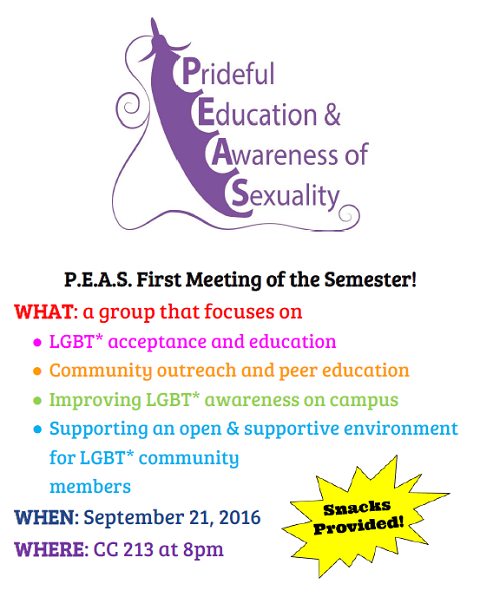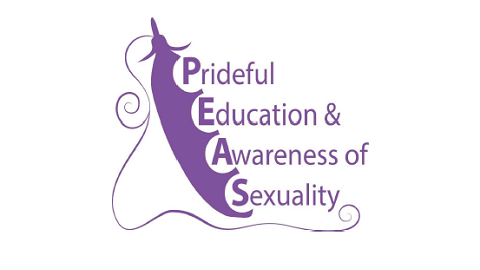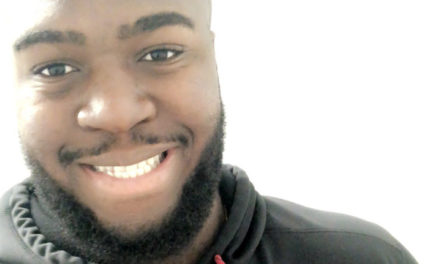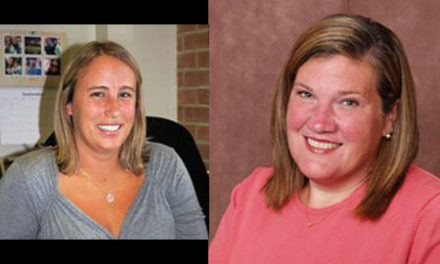By Najya Beatty-McLean, The Whetstone
Amber Johnson has been a part of the LGBTQ community for as long as she can remember.
“People of the LGBTQ community want nothing more than to be noticed by others as someone no different than others,†she said. “The more we grow as a community, the more people will have to accept that we are here and not going anywhere.â€
Being a part of the LGBTQ (Lesbian-Gay-Bisexual-Transgender-Queer) community seems to be more popular than it used to be. It is even more popular among younger people, including college students. There are now scholarships for students in the LGBTQ community.
“The LGBTQ community wants to be recognized as valid,†said Emily Temple, a senior who identifies herself as bisexual. “We are human, and we are in the LGBTQ community. You don’t have to ignore the second part to respect the first.â€
The LGBTQ population stands at about 10 percent of the population, according to a poll done by gallup.com.
“I’m pretty sure there are a lot of gay people around us,†said Marquita Dickerson-Frisby, a junior and President of Wesley P.E.A.S (Prideful Education and Awareness of Sexuality), who identifies herself as gay. “Whether we know it or not, gay people are everywhere. It’s good to know we, as a community, are finally being accepted with less judgment.â€
Wesley’s LGBTQ community doesn’t find Dover to be all that friendly.
“I see a lot of gay people on campus,†said John Taylor, a freshman who identifies as gay. “But I don’t see many in Dover as a whole. That should be worked on.â€
“To be honest, if it’s not on campus, I don’t see a lot of gay people in Dover,†said Ayana Davis, a sophomore who identifies herself as heterosexual. “Not saying all gay people are noticeable, I just haven’t run across many outside of campus.â€
As the LGBTQ community becomes more accepted, more scholarships have been offered to that community, for both public and private colleges. Scholarships offered by University of California, San Diego – but available to anyone – include an LGBTQ Scholarship, Russ Ty Gay and Lesbian Scholarship, Marx and Marshall Gay and Lesbian Scholarship, and C.B Arrott Gay, Lesbian and Bisexual Scholarship.
Kia Smith, a senior and member of the LGBTQ community who identifies herself as bisexual, said she was surprised by the scholarships.
“Who would’ve thought about a scholarship for homosexuals?†she asked. “Basically we are being recognized for who we are. Now, it’s like, ‘Here is a scholarship for loving and liking the same sex, regardless of what anyone else thinks.’â€
What other people think is important to some in and outside the LGBTQ community.
“I think the main thing the LGBTQ community worries about when coming out the closet and coming to college is what people will think of them,†said Amanda Reynolds, a junior who identifies herself as heterosexual. “I can’t speak for everyone but I have had some friends of the community teased and bullied because of who they are and who they like.â€
The Princeton Review recently rated the 20 most “LGBT Friendly Colleges†in the United States. Some of the 20 include Stanford University, Brown University, Bennington College in Vermont, and Bryn Mawr College near Philadelphia.
“When I chose to come to Wesley, I didn’t think about how many gay people were going to be attending or how the staff here acknowledges those in the community,†said freshman Heaven Bernard. “As a member of the community, I don’t think Wesley is bad but I would have loved to attend a college that is LGBTQ-friendly. Just like some people of the heterosexual community, I would love to be around a lot of people who are just like me and have been through similar things as me.â€
Some in the LGBTQ community say religious opposition to them has been hurtful.
“When it comes to identifying yourself, religion plays a major part,†said Daniel Lewis, a sophomore who identifies himself as homosexual. “I was raised in a household where there could be no talk of homosexuals because my parents are big on Christianity.â€
Lewis said he was disowned when he told his family.
“I decided that I would rather have happiness than to be miserable trying to please everyone else,†he said.
Amber Johnson said she’s confused by what she considers to be religious hypocrisy.
“It confuses me that religious people will tell you to believe in whatever you choose but in the same breath tell you not to love whoever you want,†she said. “I think the main purpose of life is to live it to the fullest and be happy doing it. How can anyone in the LGBTQ community be happy with their lives when you have people constantly telling you that you can’t be accepted if you choose to love someone of the same sex who makes you happy?â€

PEAS Advertisement





